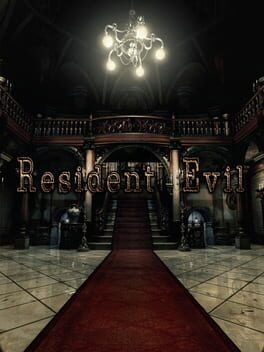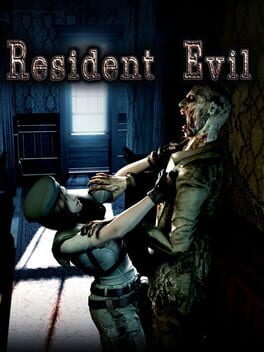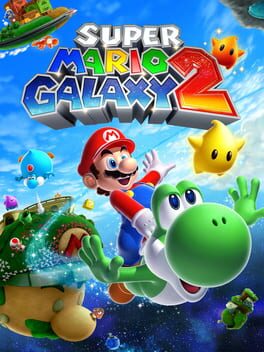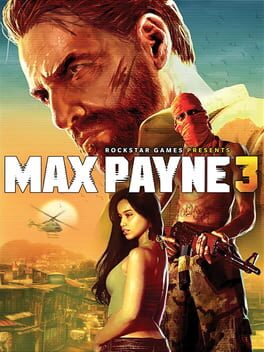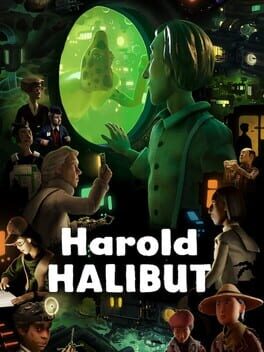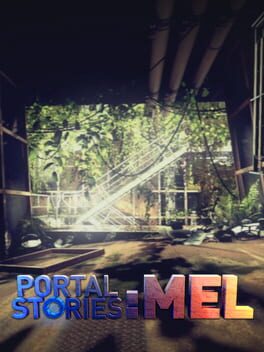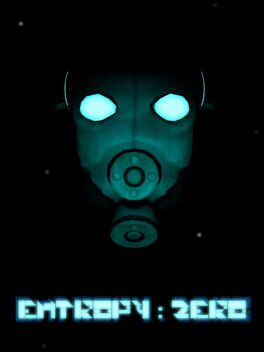Bmovo
244 reviews liked by Bmovo
Fallout
1997
Resident Evil
2014
For all the survival horror that I've dabbled with over the past few years, this is the title that made me the most cognizant of the "survival" aspect. It’s this elaborate balancing act of juggling every limited resource at your disposal: ammo for bosses and enemies, kerosene to burn necessary corpses after downing zombies to secure routes, health items as fail safes, ink ribbons to save when deemed necessary, and most importantly, inventory space to minimize backtracking with the bare minimum (knowing what you’re likely to use up as you progress so you have enough room to forage). What’s key to all of this is that it’s often worthwhile not downing zombies at all to not only conserve ammo, but also prevent the possibility of a more dangerous Crimson Head when kerosene is not only limited but requires further planning for refueling and additional inventory slots (lighter + flask). It’s punishing, but in the best way possible; damage and death become instruments of observation to properly plan out backtracking and understanding exactly what goes where. Perhaps my favorite example of this in action was abusing the various doors in a room connecting the shed corridor with a safe room; by quickly going in and out of the entrances, I could not only reset a Hunter’s awareness and spawn, but also place myself in a position where I could immediately run at the Hunter to proc an attack and slip past every time. It certainly helps, regardless, that there’s plenty of leeway for careful experimentation, thanks to all of the scattered health items about the mansion (granted, often requiring careful planning to optimize grounded herbs in rooms and keeping enough inventory space open for trips). It’s also fairly firm at setting its boundaries by telegraphing enemy placement far in advance with rattling doors/windows to signify enemy shifts, background moaning when a zombie is present in the room, and even environmental noises like crunching fallen glass to make up for the lack of vision with fixed camera angles.
That doesn’t mean, however, that the horror has been neglected. If anything, I found this game far more unsettling beyond sudden surprises. It’s not so much the fear of the unexpected, but rather, the lingering fear of waiting for the other shoe to drop while you’re expecting the unexpected. They're scripted events, sure, but they're well disguised thanks to every room often acting as its own isolated microcosm without the presence of the protagonist (not to mention that it's pretty easy to get caught up in the middle of things and forget about each individual room, which makes it all the more viscerally shocking) and there's still a feeling of player control with careful planning and routing. This fits perfectly alongside its core philosophy of risk versus reward, the existential dread of having to backtrack through several zombie infested corridors when you realize you forgot an inventory key and having to constantly and deliberately throw yourself into tight situations just to save another trip across the map. It’s what makes this such an ideal speedrunning game: not necessarily because of satisfying movement or combat, but because Resident Evil is really a game about time management. Every second wasted tromping through another passageway is time that could contribute to a zombie reviving as a Crimson Head or another second spent replaying if you’re not willing to use that extra ink ribbon. The primal fear arising from guaranteed safety as a fleeting resource lends perfectly to the need for optimization; in that sense, pressuring players into constantly checking the map to avoid confrontations and getting lost goes hand in hand with spending as little time as possible, for nothing is more terrifying than having to rewind the simulations in your head for another go.
I can’t help but feel that every detail of this game was thought down to the bone, even the original tank control scheme. That’s right, I’m actually defending tank controls for once in my life… how the turns have tabled. Dodging enemies can seem tougher, but most are conveniently placed near corners and more open areas to give you the room necessary to dodge with a backstep/quick burst to the side if you’re willing to wait and bait committal attacks. More importantly, using tank controls lets you maintain your direction and momentum while running through different camera angles of a room. With alternate controls, you most likely have to hold down the joystick to maintain velocity and upon a new camera angle, will have to quickly retap to keep the intended direction with each new angle. This becomes paramount in tighter chase sequences, where even slight moments of stagnation can lead to damage/death, as well as one timed puzzle where I had to press a button and then quickly run through several fixed angles to get into position to push a statue. In addition, I found it rather difficult to reliably walk (as opposed to running full-time) with alternate controls over tank controls, which can absolutely backfire during an end-game sequence where running for a prolonged period can trigger an explosion during nitro delivery. Therefore, the circumstances created by the environment not only are doable with tank controls, but in fact necessitate the usage of such controls.
Everything just comes together as this tightly designed package. Puzzles have fairly evident tells and can be figured out with careful observation of the surroundings while facilitating the inventory scramble that plays so heavily to the game’s survival elements. The lore never feels overbearing or excessive, and does a great job weaving in hints for crafting approaches and figuring out exactly what has to be accomplished. There’s never an explicit timer on screen outside of the final ending segment, yet the game is great at creating circumstances where you’re forced to make decisions on the fly from environmental stressors and considering the mansion not just on a per room basis, but as a sum of its parts. I genuinely don’t think I have any gripes; it was more than happy to beat me down, but understanding its parameters to scale up against its challenges was an incredibly fulfilling experience. I’d damn well say that REmake is the most focused and cohesive survival horror experience I’ve ever played. Not just a perfect remake, but perhaps a practically perfect game.
That doesn’t mean, however, that the horror has been neglected. If anything, I found this game far more unsettling beyond sudden surprises. It’s not so much the fear of the unexpected, but rather, the lingering fear of waiting for the other shoe to drop while you’re expecting the unexpected. They're scripted events, sure, but they're well disguised thanks to every room often acting as its own isolated microcosm without the presence of the protagonist (not to mention that it's pretty easy to get caught up in the middle of things and forget about each individual room, which makes it all the more viscerally shocking) and there's still a feeling of player control with careful planning and routing. This fits perfectly alongside its core philosophy of risk versus reward, the existential dread of having to backtrack through several zombie infested corridors when you realize you forgot an inventory key and having to constantly and deliberately throw yourself into tight situations just to save another trip across the map. It’s what makes this such an ideal speedrunning game: not necessarily because of satisfying movement or combat, but because Resident Evil is really a game about time management. Every second wasted tromping through another passageway is time that could contribute to a zombie reviving as a Crimson Head or another second spent replaying if you’re not willing to use that extra ink ribbon. The primal fear arising from guaranteed safety as a fleeting resource lends perfectly to the need for optimization; in that sense, pressuring players into constantly checking the map to avoid confrontations and getting lost goes hand in hand with spending as little time as possible, for nothing is more terrifying than having to rewind the simulations in your head for another go.
I can’t help but feel that every detail of this game was thought down to the bone, even the original tank control scheme. That’s right, I’m actually defending tank controls for once in my life… how the turns have tabled. Dodging enemies can seem tougher, but most are conveniently placed near corners and more open areas to give you the room necessary to dodge with a backstep/quick burst to the side if you’re willing to wait and bait committal attacks. More importantly, using tank controls lets you maintain your direction and momentum while running through different camera angles of a room. With alternate controls, you most likely have to hold down the joystick to maintain velocity and upon a new camera angle, will have to quickly retap to keep the intended direction with each new angle. This becomes paramount in tighter chase sequences, where even slight moments of stagnation can lead to damage/death, as well as one timed puzzle where I had to press a button and then quickly run through several fixed angles to get into position to push a statue. In addition, I found it rather difficult to reliably walk (as opposed to running full-time) with alternate controls over tank controls, which can absolutely backfire during an end-game sequence where running for a prolonged period can trigger an explosion during nitro delivery. Therefore, the circumstances created by the environment not only are doable with tank controls, but in fact necessitate the usage of such controls.
Everything just comes together as this tightly designed package. Puzzles have fairly evident tells and can be figured out with careful observation of the surroundings while facilitating the inventory scramble that plays so heavily to the game’s survival elements. The lore never feels overbearing or excessive, and does a great job weaving in hints for crafting approaches and figuring out exactly what has to be accomplished. There’s never an explicit timer on screen outside of the final ending segment, yet the game is great at creating circumstances where you’re forced to make decisions on the fly from environmental stressors and considering the mansion not just on a per room basis, but as a sum of its parts. I genuinely don’t think I have any gripes; it was more than happy to beat me down, but understanding its parameters to scale up against its challenges was an incredibly fulfilling experience. I’d damn well say that REmake is the most focused and cohesive survival horror experience I’ve ever played. Not just a perfect remake, but perhaps a practically perfect game.
Resident Evil
2002
Super Mario Galaxy 2
2010
Max Payne 3
2012
Harold Halibut
2024
A person's tolerance for Harold Halibut is going to depend on how much mileage they get out of slower games where inhabiting the space and conversations are the key focus, rather than anything resembling moment to moment gameplay.
I don't blame anyone who doesn't get on with that or think that any single approach is objectively better or worse, but I was drawn in by the game's beautiful handcrafted aesthetic and its hold on me never really faltered throughout the runtime. The ship you live on is full of memorable characters with their own unique idiosyncrasies, all helped along by a strong voice work - for Harold specifically there's a great balance between goofy ignorance and sentimentality, and that personality is probably one of the major factors that kept me going.
But I must emphasise again that this is a very slow game and there are quirks that come with that - sometimes your movement speed is slowed to a crawl as you'e made to follow another character, sometimes the dialogue goes on a little longer than expected, and this will put some people off. Thankfully for me, I used that time to take in the absolutely gorgeous world, animation and the small details dotted around all the locations you visit.
I don't blame anyone who doesn't get on with that or think that any single approach is objectively better or worse, but I was drawn in by the game's beautiful handcrafted aesthetic and its hold on me never really faltered throughout the runtime. The ship you live on is full of memorable characters with their own unique idiosyncrasies, all helped along by a strong voice work - for Harold specifically there's a great balance between goofy ignorance and sentimentality, and that personality is probably one of the major factors that kept me going.
But I must emphasise again that this is a very slow game and there are quirks that come with that - sometimes your movement speed is slowed to a crawl as you'e made to follow another character, sometimes the dialogue goes on a little longer than expected, and this will put some people off. Thankfully for me, I used that time to take in the absolutely gorgeous world, animation and the small details dotted around all the locations you visit.
Fallout: New Vegas
2010
I would like to apologize to Fallout New Vegas. I have 499 hours sunk into this game over the course of several years. I bought it when I was a teenager and played it all the way to Uni and beyond.
And yet, after all those almost 500 hours of play I cannot go back to it, every attempt petering out shortly thereafter from the realization that I have seen it all, experienced every nuance and perspective from a game that only wished to enrich my life through its myriad of systems, characters and masterful roleplaying design. "He wept, for there were no more worlds to conquer".
This is not meant to be an insult to FNV, far from it. I am not the kind of ridiculous child that gets made fun of on social media for giving a low score to a game cause "after doing the main campaign and the sidequests and achievements etc there's nothing to do! unfinished game". Quite the opposite. I apologize because in playing FNV so many times from so many angles and perspectives, uncovering every single layer of a legendarily dense game I have stripped it away like a hunter salvaging every organ and resource from a deer.
Its darkly ironic that the very same process which has allowed me to fully appreciate just how diverging, rich and wonderfully replayable this modern classic in RPG design is exactly why I can never go back to it. FNV is to me now like a fully solved problem, a series of understood systems, of known interactions and characters which are transparent in their every function. In short its completely stripped of the illusion of being a world, of being on an adventure with real people with goals and hopes and dreams and fears.
This maybe comes off as overblown and for sure, its no great tragedy, all good things come to an end and FNV has given me more than is reasonable to my life, but after going to back to revisit and old favourite and being unable to enjoy any of it, I felt a profound sadness. I think completionism is bad in general, and semi relatedly FNVs spiritual successor The Outer Worlds feels very much designed to court the enjoyment of completionists and is worse for it. This is perhaps why for how much it frustrates me I still come back to Commonplace, a game concept founded entirely on contempt for the very urge of completionism, of allowing all of its secrets to be revealed (even if in practice they can all be found out with enough time and effort but still).
I could have pulled away at 50 hours, at 100, at 200 and still allowed New Vegas to exist on its own terms, but I didnt. And for that I am deeply sorry.
And yet, after all those almost 500 hours of play I cannot go back to it, every attempt petering out shortly thereafter from the realization that I have seen it all, experienced every nuance and perspective from a game that only wished to enrich my life through its myriad of systems, characters and masterful roleplaying design. "He wept, for there were no more worlds to conquer".
This is not meant to be an insult to FNV, far from it. I am not the kind of ridiculous child that gets made fun of on social media for giving a low score to a game cause "after doing the main campaign and the sidequests and achievements etc there's nothing to do! unfinished game". Quite the opposite. I apologize because in playing FNV so many times from so many angles and perspectives, uncovering every single layer of a legendarily dense game I have stripped it away like a hunter salvaging every organ and resource from a deer.
Its darkly ironic that the very same process which has allowed me to fully appreciate just how diverging, rich and wonderfully replayable this modern classic in RPG design is exactly why I can never go back to it. FNV is to me now like a fully solved problem, a series of understood systems, of known interactions and characters which are transparent in their every function. In short its completely stripped of the illusion of being a world, of being on an adventure with real people with goals and hopes and dreams and fears.
This maybe comes off as overblown and for sure, its no great tragedy, all good things come to an end and FNV has given me more than is reasonable to my life, but after going to back to revisit and old favourite and being unable to enjoy any of it, I felt a profound sadness. I think completionism is bad in general, and semi relatedly FNVs spiritual successor The Outer Worlds feels very much designed to court the enjoyment of completionists and is worse for it. This is perhaps why for how much it frustrates me I still come back to Commonplace, a game concept founded entirely on contempt for the very urge of completionism, of allowing all of its secrets to be revealed (even if in practice they can all be found out with enough time and effort but still).
I could have pulled away at 50 hours, at 100, at 200 and still allowed New Vegas to exist on its own terms, but I didnt. And for that I am deeply sorry.
Fallout: New Vegas
2010
Portal Stories: Mel
2015
Initially, I didn't enjoy my time with Portal Stories: Mel. The first hour was rough, there were tons of dialogue and a sense of directionlessness fairly early on already. At that point I didn't even reach a single puzzle, since the beginning is one of those notorious 'walking simulator' segments (in Portal terms). So while I was rather demotivated, I couldn't bring myself to drop the game just yet and continued playing. (I'm really glad I did!)
Narratively speaking, Portal Stories: Mel isn't exactly a masterpiece, but the plot is good enough to give a solid reason for the many different puzzles - which are quite fun and satisfying to solve! There are two different difficulty settings - Story Mode and Advanced Mode. Advanced Mode is the original difficulty of the mod, while Story Mode is a different take on the puzzles with less difficulty - like the name says, it's designed to experience the story. I played on Story Mode (since it's recommended by the devs) and found the experience to be just right overall, but I'll opt for an Advanced Mode run when I'm going to replay the game someday.
Virgil is a pretty neat companion - even if he's really talkative. Like I pointed out earlier, the dialogue isn't really this game's strong suit, but I still found him entertaining and unique enough. Coming back to the narrative in general, I'm glad this game has a proper ending (unlike another Portal fangame) and wraps up things nicely. Feels reminiscent of how Portal 2 ended.
Just like Portal: Revolution, Portal Stories: Mel is a good choice if you want more Portal content and great puzzles - it's not a fan favorite for no reason!
Narratively speaking, Portal Stories: Mel isn't exactly a masterpiece, but the plot is good enough to give a solid reason for the many different puzzles - which are quite fun and satisfying to solve! There are two different difficulty settings - Story Mode and Advanced Mode. Advanced Mode is the original difficulty of the mod, while Story Mode is a different take on the puzzles with less difficulty - like the name says, it's designed to experience the story. I played on Story Mode (since it's recommended by the devs) and found the experience to be just right overall, but I'll opt for an Advanced Mode run when I'm going to replay the game someday.
Virgil is a pretty neat companion - even if he's really talkative. Like I pointed out earlier, the dialogue isn't really this game's strong suit, but I still found him entertaining and unique enough. Coming back to the narrative in general, I'm glad this game has a proper ending (unlike another Portal fangame) and wraps up things nicely. Feels reminiscent of how Portal 2 ended.
Just like Portal: Revolution, Portal Stories: Mel is a good choice if you want more Portal content and great puzzles - it's not a fan favorite for no reason!
Entropy: Zero
2017
People sure love playing as the bad guy, huh?
(Spoiler Warning)
I tend to really enjoy game mods in Source, something about how they play always scratches a good itch for me and I can tend to put up with a mediocre experience due to that. Entropy: Zero fits that spot to a tee, it's an alright HL2:E2 mod that functions and has some neat ideas but is pretty unremarkable
The tone is probably the strongest part of the game, I think it does a good job at imitating HL2's vibe despite being the story being on the opposite foot. Instead of the misery of the world having a tinge of hope due to Gordon's appearance, you're the one removing any and all hope the rebels could have had. It's really effective when clearing out the streets at the beginning where you see the rebel call-outs in a different light, and I found the most effective use to be the stealth section: you hear the rebels all chatting about how they'll go on after the war in their compound with hacked turrets. Once you sneak to the final room, you can revert the hack, leading to every turret firing for a single second causing the entire area to go dead silent. Something about that really stuck with me and I was expecting more of that throughout the game
Instead the rest of the game was mostly focused on slogging through the underground and citadel with boring puzzles and a lot of searching for the right item/place to use an item. None of the puzzles were engaging and they all felt like artificial reasons to lock the player from progressing forward instead of being more diegetic like the ones in the Half-Life games. I did shockingly find the escort section to be enjoyable, the pace at which enemies were sent at you combined with the size of the area and the speed of the escort target made it so I felt like I was constantly doing something without being overwhelmed
And then comes the two boss fights after all that, both sucking major ass. Both have issues where it's hard to tell whether the damage you're doing is affecting the boss and both bugged out on me multiple times, with the first refusing to go to the next area in its first phase and the second not taking any damage in its final phase (I had quite a few bugs throughout the brief hour and a half I spent but those two were the worst).
It's fortunate the weapons aren't the issue at least, they're more or less the same to base HL2 except they feel a bit more potent overall and the modified AR2 feels amazing. I played on the hardest difficulty but never felt like I was having too much trouble, they give you plenty of ammo and health/shield throughout the game but not too much of an excess so reckless players can still easily die. I think the only issue that comes up relating to this is the few sections with endlessly spawning enemies aren't very fun since there isn't much risk if you carefully position yourself
Entropy: Zero is an alright hour and a half to two hour experience that won't amaze you but won't enrage you. Honestly I played the game just because I wanted to play the sequel, but I'd say it was somewhat worth my time (especially because it's free)
(Spoiler Warning)
I tend to really enjoy game mods in Source, something about how they play always scratches a good itch for me and I can tend to put up with a mediocre experience due to that. Entropy: Zero fits that spot to a tee, it's an alright HL2:E2 mod that functions and has some neat ideas but is pretty unremarkable
The tone is probably the strongest part of the game, I think it does a good job at imitating HL2's vibe despite being the story being on the opposite foot. Instead of the misery of the world having a tinge of hope due to Gordon's appearance, you're the one removing any and all hope the rebels could have had. It's really effective when clearing out the streets at the beginning where you see the rebel call-outs in a different light, and I found the most effective use to be the stealth section: you hear the rebels all chatting about how they'll go on after the war in their compound with hacked turrets. Once you sneak to the final room, you can revert the hack, leading to every turret firing for a single second causing the entire area to go dead silent. Something about that really stuck with me and I was expecting more of that throughout the game
Instead the rest of the game was mostly focused on slogging through the underground and citadel with boring puzzles and a lot of searching for the right item/place to use an item. None of the puzzles were engaging and they all felt like artificial reasons to lock the player from progressing forward instead of being more diegetic like the ones in the Half-Life games. I did shockingly find the escort section to be enjoyable, the pace at which enemies were sent at you combined with the size of the area and the speed of the escort target made it so I felt like I was constantly doing something without being overwhelmed
And then comes the two boss fights after all that, both sucking major ass. Both have issues where it's hard to tell whether the damage you're doing is affecting the boss and both bugged out on me multiple times, with the first refusing to go to the next area in its first phase and the second not taking any damage in its final phase (I had quite a few bugs throughout the brief hour and a half I spent but those two were the worst).
It's fortunate the weapons aren't the issue at least, they're more or less the same to base HL2 except they feel a bit more potent overall and the modified AR2 feels amazing. I played on the hardest difficulty but never felt like I was having too much trouble, they give you plenty of ammo and health/shield throughout the game but not too much of an excess so reckless players can still easily die. I think the only issue that comes up relating to this is the few sections with endlessly spawning enemies aren't very fun since there isn't much risk if you carefully position yourself
Entropy: Zero is an alright hour and a half to two hour experience that won't amaze you but won't enrage you. Honestly I played the game just because I wanted to play the sequel, but I'd say it was somewhat worth my time (especially because it's free)

